Water Sark (1965)
ジャンル : ドキュメンタリー
上映時間 : 14分
演出 : Joyce Wieland
シノプシス
"I decided to make a film at my kitchen table, there is nothing like knowing my table. The high art of the housewife. You take prisms, glass, lights and myself to it. 'The Housewife is High.' Water Sark is a film sculpture, being made while you wait."

クリスマスに恋人ハーパーの実家に招待され、そこで彼女にプロポーズするつもりでいたアビー。だが実はハーパーは家族にカミングアウトしておらず、2人の関係も隠していることが判明し...。

女子高生のジュリーとカイラ、そしてサムの仲良し3人組は、卒業パーティーのプロムが開催される夜にヴァージンを捨てようと計画する。そんな娘たちの計画を知ってしまった親たち、ジュリーのお母さんリサと、カイラのお父さんミッチェル、そしてサムのお父さんであるハンターの3人組が一致団結、娘たちの処女喪失を阻止し貞操を守るため奮闘する。

A 17-year old Missouri teen discovers she has gotten pregnant, a development that threatens to end her dreams of matriculating at an Ivy League college, and the career that could follow.

An unexpected affair quickly escalates into a heart-stopping reality for two women whose passionate connection changes their lives forever.

Overeducated and underemployed, 28 year old Megan is in the throes of a quarterlife crisis. Squarely into adulthood with no career prospects, no particular motivation to think about her future and no one to relate to, Megan is comfortable lagging a few steps behind - while her friends check off milestones and celebrate their new grown-up status. When her high-school sweetheart proposes, Megan panics and- given an unexpected opportunity to escape for a week - hides out in the home of her new friend, 16-year old Annika and Annika's world-weary single dad Craig.

マイアミの貧困地域で、麻薬を常習している母親ポーラと暮らす少年シャロン。学校ではチビと呼ばれていじめられ、母親からは育児放棄されている彼は、何かと面倒を見てくれる麻薬ディーラーのホアンとその妻、唯一の友人のケビンだけが心の支えだった。そんな中、シャロンは同性のケビンを好きになる。そのことを誰にも言わなかった。
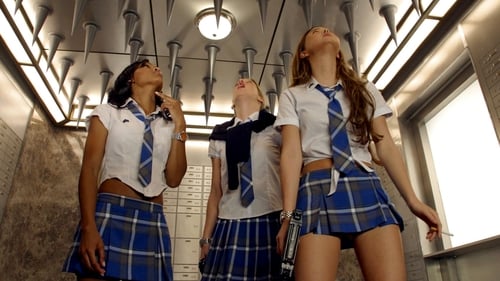
The star of a team of teenage crime fighters falls for the alluring villainess she must bring to justice.
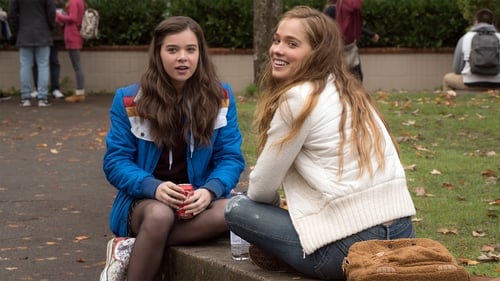
Two high school girls are best friends until one dates the other's older brother, who is totally his sister's nemesis.

Pennsylvania, 1993. After getting caught with another girl, teenager Cameron Post is sent to a conversion therapy center run by the strict Dr. Lydia Marsh and her brother, Reverend Rick, whose treatment consists in repenting for feeling “same sex attraction.” Cameron befriends fellow sinners Jane and Adam, thus creating a new family to deal with the surrounding intolerance.

On an isolated island in Brittany at the end of the eighteenth century, a female painter is obliged to paint a wedding portrait of a young woman.

1952年の歳末、NYの高級百貨店でアルバイトをするテレーズは、クリスマスプレゼントを探しに店を訪れた優雅で上品な人妻キャロルと出会い、彼女に魅せられる。店に置き忘れた手袋をキャロルに送り届けたことから、彼女の知己を得たテレーズは、キャロルが夫ハージとの愛のない結婚生活に疲れ果て、いまや離婚協議中であること、そして娘の親権を彼に奪われそうになって苦しんでいることを知る。2人の距離は次第に縮まる。
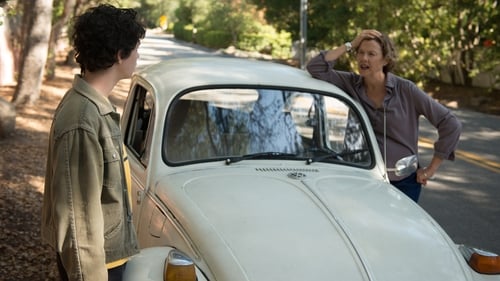
1979年夏、カリフォルニア州西海岸の古ぼけた家で、シングルマザーの母親ドロシアとともに暮らす15歳の少年ジェイミー。家には、2人のほかに、20代半ばの女性写真家アビーと、元ヒッピーの便利屋のウィリアムが間借りしていた。息子が反抗期を迎え、自分だけでは手に負えなくなってきたのを懸念したドロシアは、アビーと、近所に住む17歳の不思議少女ジュリーに、ジェイミーのサポートをぜひよろしく、と頼み込む。
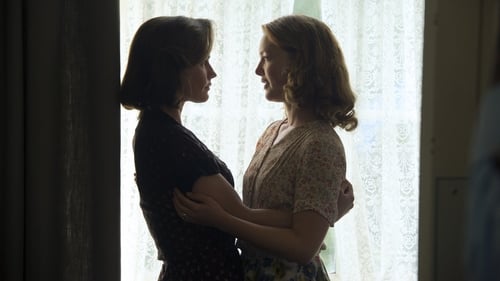
Dr. Jean Markham returns to the town she left as a teenager to take over her late father's medical practice. When a school-yard scuffle lands Charlie in her surgery, she invites him to visit the hives in her garden and tell his secrets to the bees, as she once did. The new friendship between the boy and the bee keeper brings his mother Lydia into Jean's world.
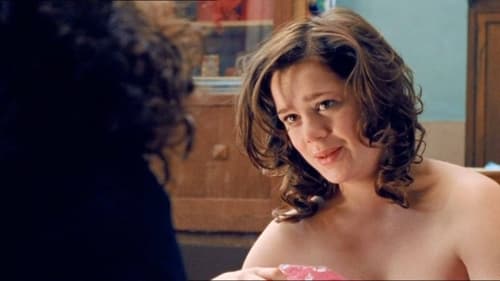
19-year old Belle practices playing the violin diligently, but is unable to impart her music with a sensitive undertone. Her life changes when she discovers that sexual desire stimulates passion in her music.
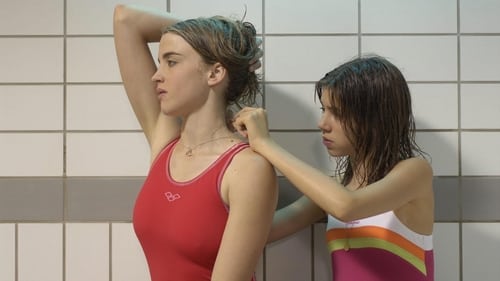
Set during a sultry summer in a French suburb, Marie is desperate to join the local pool's synchronized swimming team, but is her interest solely for the sake of sport or for a chance to get close to Floriane, the bad girl of the team? Sciamma, and the two leads, capture the uncertainty of teenage sexuality with a sympathetic eye in this delicate drama of the angst of coming-of-age.

米国のNSA(国家安全保障局)で働き、同じく情報機関のCIA(中央情報局)でも働いた当時29歳の男性スノーデンは、米政府が国民のプライバシーを侵害していることに憤り、2013年、“シチズンフォー”というハンドルネームを使ってドキュメンタリー監督ポイトラスと連絡を取り、自分が知っているすべてをカメラの前で語ると言い、ポイトラス監督とジャーナリストのグリーンウォルドは香港でスノーデンと面会する。

Filmed over five years in Kansas City, this documentary follows four transgender kids – beginning at ages 4, 7, 12, and 15 – as they redefine “coming of age.” These kids and their families show us the intimate realities of how gender is re-shaping the family next door in a unique and unprecedented chronicle of growing up transgender in the heartland.
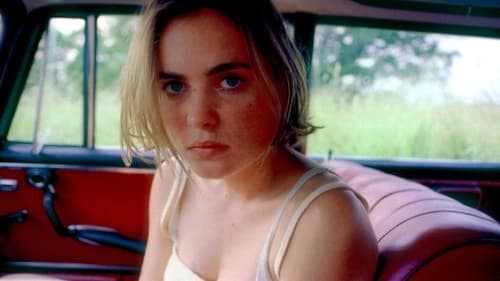
A young female intern at a small magazine company becomes involved with a drug-addicted lesbian photographer, both of whom seek to exploit each other for their respective careers, while slowly falling in love with each other.
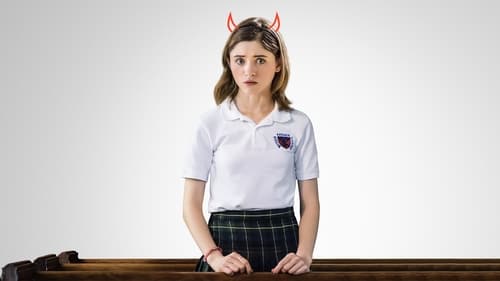
Alice, a young innocent Catholic girl, is tempted into masturbating after an AOL chat suddenly turns sexual, however is conflicted as the act would be considered a sin.

Georgia Nicolson is fourteen, lives with nosey parents who don't understand her, an annoying three year old sister and has to wear a beret to school. She would, however, rather be blonde, have a smaller nose and a boyfriend. Revolving around her hilarious journal entries, prepare to be engulfed in the world of the soaring joys and bottomless angst of being a teenager.

Although best known for his photography, Steven Arnold also wrote, designed, and directed several groundbreaking visionary films, The Liberation of Mannique Mechanique being the first. Stuart Comer of the Tate Modern (London) said of Mannique: “a macabre, decadent work presenting mannequins and models that travel through strange universes toward possible self-discovery.” Brooklyn-based artist and writer Kate Wadkins in a recent online article observed: “Arnold’s films are dream-like visions of androgynous beings. Their narratives are modern-day fairy tales and reveries about gender — all through the lens of an acid trip.”

A craftsman builds a glass harmonica that enlightens him. He travels to a town where the people are obsessed with money. A bureaucrat smashes the glass harmonica which leads to chaos and eventually to social reform.

In his first film work, Kubelka evokes episodes of flirtation, courtship, and break-ups, played out against a series of non-corresponding audio excerpts.

This classic short film depicts the Klondike gold rush at its peak, when would-be prospectors struggled through harsh conditions to reach the fabled gold fields over 3000 km north of civilization. Using a collection of still photographs, the film juxtaposes the Dawson City at the height of the gold rush with its bustling taverns and dance halls with the more tranquil Dawson City of the present.

This film, photographed in London, is an exploration into the depths of unconscious reactions.

Samadhi is both mystical and mysterious, an incredible fusion of movement, sound and colour. Belson notes the influence of his study and practice of Yoga and Tibetan Buddhism on the creation of Samadhi. The film is inspired by the principles of yogic meditation: the movement of consciousness towards samadhi (union of subject and object), the fusion of atma (breath and mind), a state which reveals the divine force of kundalini, a bright white light we discover at the end of Samadhi. The Tibetan Book of The Dead is the inspiration behind Belson’s use of colour in Samadhi, corresponding to descriptions of the elements of Earth, Fire, Air and Water in the book. —Sophie Pinchetti, The Third Eye

Part of the "Through Navajo Eyes" series of seven short documentaries, along with Intrepid Shadows (1966), The Navajo Silversmith (1966), Old Antelope Lake (1966), Second Weaver (1966), The Shallow Well Project (1966), and The Spirit of the Navajos (1966).

Part of the "Through Navajo Eyes" series of seven short documentaries, along with Intrepid Shadows (1966), A Navajo Weaver (1966), Old Antelope Lake (1966), Second Weaver (1966), The Shallow Well Project (1966), and The Spirit of the Navajos (1966)

Documentary on a religious practice in the Puglia region of Italy whereby women assert that they have been bitten by a tarantula and dance until they are exorcised of the poison.

Alfred Clah was a Navajo artist from a community outside Pine Springs, AZ. He said: "they making films about things out there, the trading post, things you can see; I'm making films about inside: I like to see scenes that people never expected, the legends, the gods."

A short horror film based on Edgar Allan Poe's poem The Raven.

For the production of this film, Oskar Fischinger tinted various layers of hot wax. After cooling, the resulting lump of wax resembled a marble cake. Fischinger then began to cut off slices from the lump, photographing each step.

“The Riddle of Lumen” presents an evenly paced sequence of images, which seem to follow an elusive logic. As in “Zorns Lemma” the viewer is called upon to recognize or invent a principle of association linking each shot with its predecessor. However, here the connection is nonverbal. A similarity, or an antithesis, of color, shape, saturation, movement, composition, or depth links one shot to another. A telling negative moment occurs in the film when we see a child studying a didactic reader in which simply represented objects are coupled with their monosyllabic names in alphabetical order. –P. Adams Sitney

The film speaks of student demonstrations in Belgrade, 1969 and of the critical quality, enthusiasm and discipline of this form of protest. It was the most powerful public criticism of "red bourgeoisie" - members of communist apparatus, who suppressed creativity and affirmation of new generations throughout Eastern block.

Byzance uses a text by Stefan Zweig to describe the Ottoman conquest of the city in 1453. Before he turned to feature filmmaking in 1968 with Naked Childhood, Pialat worked on a series of short films, many of them financed by French television. Byzance is one of Pialat’s six Turkish shorts.

Between a wave’s rhythm and the breath of a young woman in her sleep, some animated paintings go on modifying each other.

Serene Velocity stares down the center of an empty institutional hallway while shifting the focal length of a stationary zoom lens, transforming the basement corridor into a nexus of visual and conceptual energy.

A Navajo short film which documents a boy drawing and using water from Old Antelope Lake.

Peripheral envisionment of daily life as the mind has it - i.e., a terrifying ecstasy of (hand-painted) synapting nerve ends back-firing from thought's grip of life.

























